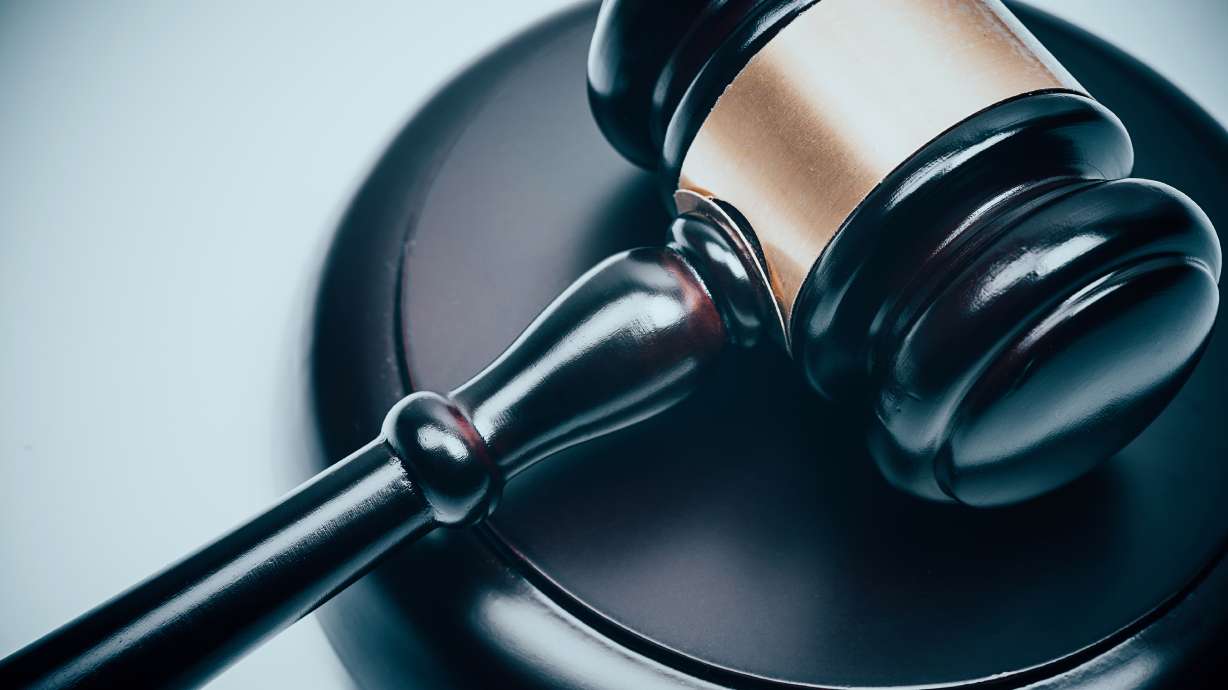Estimated read time: 3-4 minutes
This archived news story is available only for your personal, non-commercial use. Information in the story may be outdated or superseded by additional information. Reading or replaying the story in its archived form does not constitute a republication of the story.
SALT LAKE CITY — The owner of a Utah pharmacy who made a deal to sell the state thousands of doses of hydroxychloroquine as a controversial treatment for COVID-19 admitted in federal court Friday that drugs he bought from China were improperly branded.
Daniel Kevin Richards, the CEO of Draper-based Meds in Motion, pleaded guilty to one misdemeanor count of receipt of misbranded drugs in interstate commerce in U.S. District Court.
Richards received 50 kilograms of chloroquine and more than 500 kilograms of hydroxychloroquine around April 8, 2020, according to court documents. The product was falsely labeled as boswellia serrata extract, a resin taken from the bark of the boswellia tree grown in India, North Africa and the Middle East used to treat inflammation.
The manufacturer of the hydroxychloroquine, which is not named in the court documents, is not registered with the Food and Drug Administration. Also, the label on the drugs did not include adequate directions for use.
Richards, 37, faces up to one year in prison and a $100,000 fine. He will be sentenced March 29. He also agreed to pay for the cost of destroying the drugs.
Special Agent in Charge Charles Grinstead, of the FDA Office of Criminal Investigations in Kansas City, said proffering the sale of misbranded prescription drugs of unknown origin puts consumers' health at risk.
"We will continue to investigate and bring to justice those who intend to exploit consumers' fears during the pandemic with potentially dangerous drugs," he said in a statement.
U.S. Attorney John Huber said his office, along with the FDA and FBI, pursued "every meaningful" case.
"This is the just outcome of that thorough investigation, and it will conclude our review," he said.
Defense attorney Greg Skordas said the misdemeanor charge came as the result of months of negotiation with the Department of Justice.
"A lot of very knowledgeable people wanted the state to be prepared once the drug received approval, but we now know that never came. No one thought they were breaking any laws. These people thought they were saving lives," Skordas said earlier this week.
Early in the pandemic, some people, including President Donald Trump, touted hydroxychloroquine as a potential treatment for the coronavirus.
Skordas said many state leaders at the time were understandably anxious to get Utah on top of the issue by trying to obtain enough to help the entire state. Had it been proven effective, he said, it would have been incredibly helpful to Utah.
Trump took hydroxychloroquine despite warnings from his own government that it should only be administered for COVID-19 in a hospital or research setting due to potentially fatal side effects.
Utah bought $800,000 worth of the anti-malarial drug from Meds in Motion last April, a deal that soon raised red flags among pharmacists, medical professionals and some state lawmakers. The left-leaning Alliance for a Better Utah filed a price-gouging complaint against the pharmacy over the 20,000 doses it sold to the state.
After an internal review of the deal, the state determined that a supply of chloroquine/hydroxychloroquine was no longer prudent, and sought and received a refund from Meds in Motion.
Richards said at the time that the transaction was done in good faith and that the sale was legal, and accusations of price gouging were unfounded. He said the state would have been given a more than 50% discount in the custom compounded drugs.
Meds in Motion spent close to $1 million stockpiling chloroquine and hydroxychloroquine. Richards said at the time that the pharmacy planned to take a loss and donate the medication to charity to address a worldwide shortage of anti-malarial medications in developing countries, including Africa.









